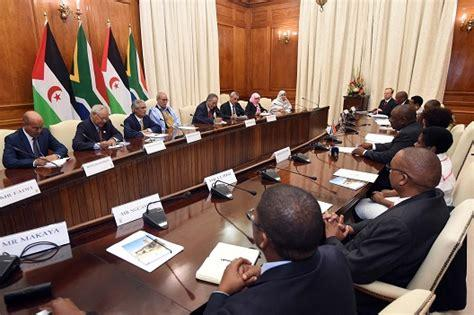Türkiye, Iran and Morocco are stepping up their initiatives towards ruling military regimes in the African Sahel, seeking to diversify their partners, in the wake of France’s withdrawal from the region.
Standing in front of the Burkina Faso television cameras, the director of the Turkish Space Agency displayed a catalog of fighter planes and combat helicopters, which is tempting for military regimes fighting terrorist groups, AFP said in a report on Monday.
The Burkinabe Foreign Minister, Karamoko Jean Marie Traoré, then reminded him of one of the mantras of the Sahelian regimes whose armies are underequipped: “For us it is a question of developing endogenous capacities in order to reduce our dependence.”
They are dependent on foreign forces, notably from France and other Western countries, which deployed in the region more than a decade ago and are reluctant to deliver offensive equipment to armies accused of committing abuses against civilian populations.
And while the French troops were packing their bags to leave the Sahel region, combat drones delivered by Türkiye became the centerpieces of Mali and Burkina Faso’s armies, which are both engaged in conflicts.
In early 2024, Mali received a new batch of Turkish Baykar drones, prized for their performance, earning the CEO of the manufacturing company, Haluk Bayraktar, a decoration in Ouagadougou in April bestowed by Burkina’s strongman, Captain Ibrahim Traoré.
“The defense sector is the driving force behind the Turkish foreign policy in African countries,” said Federico Donelli, a political scientist and author of the book “Turkey in Africa.”
He explained that while Moscow is imposing itself as the main ally of military regimes in the Sahel region, Ankara is pursuing an “invasive” policy by trying to position itself as an alternative to both the Europeans and Russia.
According to the Institute for International Political Studies – ISPI, former Turkish Foreign Minister Mevlut Cavusoglu “was the first high-level international figure to meet the military council in Mali after the August 2020 coup.”
It added that Ankara has adopted a conciliatory position with the military council in Niger, which borders Libya, where Ankara has many interests.
Ankara is also developing a project for a trans-Saharan corridor linking the Gulf of Guinea countries to Algeria, another North African stronghold of Turkish investment, according to Donelli.
Competing with Morocco, Iran
Morocco had kicked off a rival project. In September, Rabat said it offers to “make its road, port and rail infrastructures available to the Sahel countries, Burkina Faso, Chad, Mali and Niger,” to strengthen their international trade.
In January 2024, Mali, Niger and Burkina Faso said they withdrew from the Economic Community of West African States (ECOWAS).
“Türkiye has military capabilities. We have had excellent relations with Morocco since independence and they are more about economic development,” according to a government source in Niger.
Morocco and Türkiye, which enjoy longstanding influence in the region, could face new competition from Iran.
Since 2020, Tehran has increased its influence in the region, particularly amid the coups in Mali, Burkina Faso and Niger.
In October, Tehran signed several cooperation agreements with Burkina Faso in the fields of energy, urban planning, higher education and construction.
At the end of January, Tehran, a producer of combat drones, announced the establishment of two universities in Mali, and the signing of various cooperation agreements.
Thierry Coville from the Paris-based Institute for International and Strategic Affairs (IRIS) said the Iranians sign dozens of agreements and none of them work. “They don’t have the funding to support deals, or to compete seriously with Türkiye or Saudi Arabia,” he added.
But could Iran, which has increased its production of enriched uranium to 60%, eventually covet the uranium reserves of Niger that have been exploited by the French company Orano?
“This is our resource; we can sell it to anyone we want,” said a Nigerian government source.

